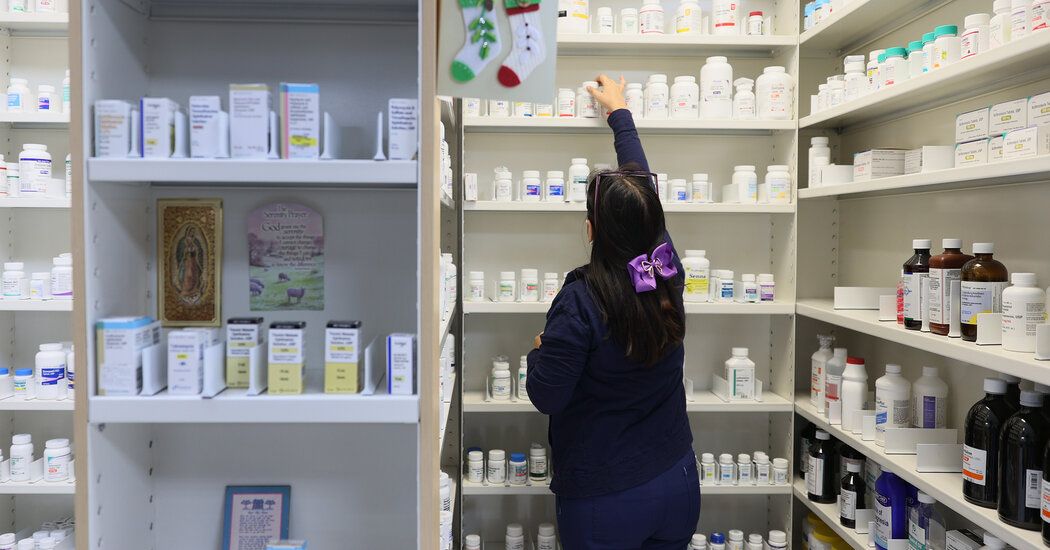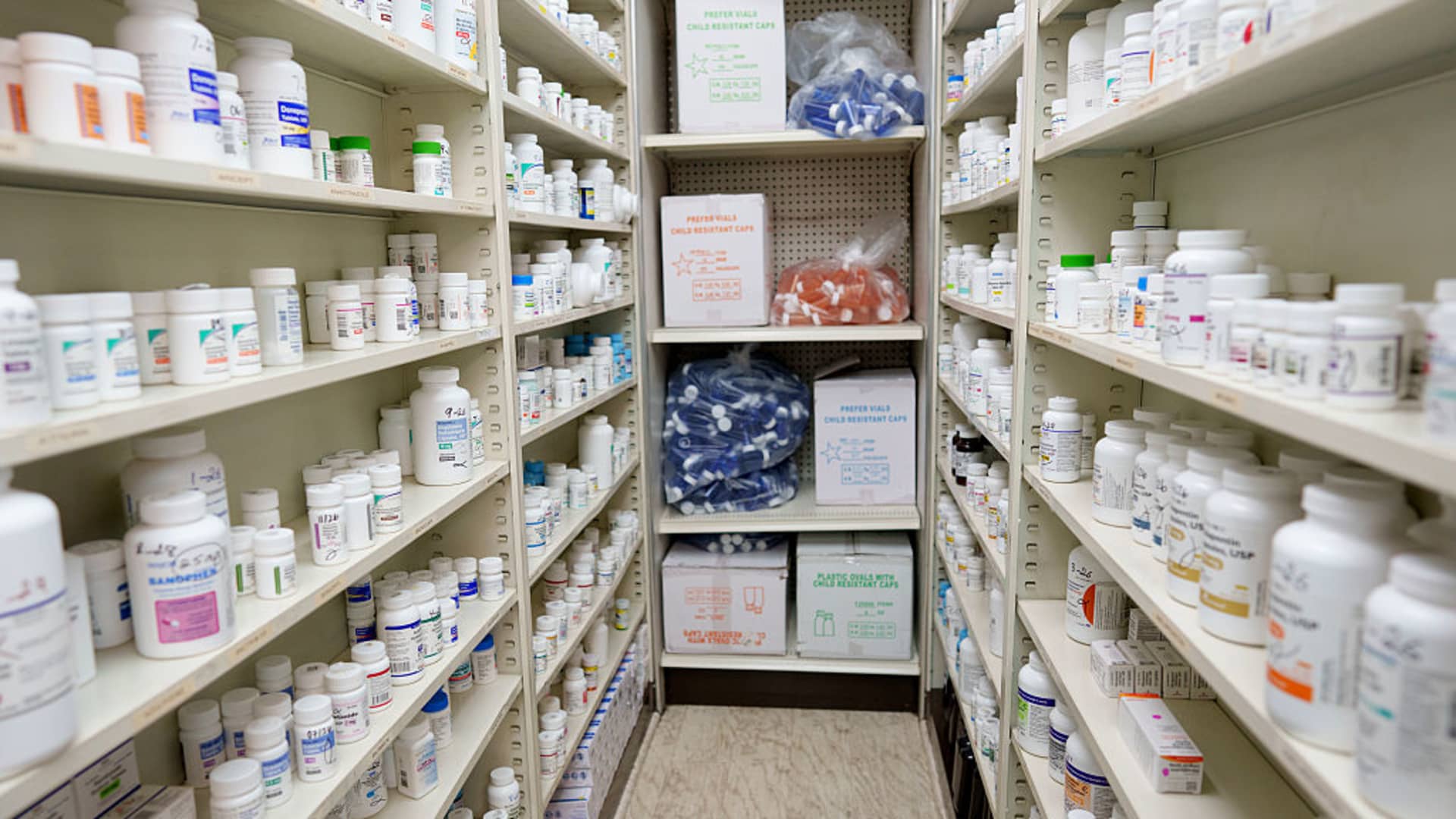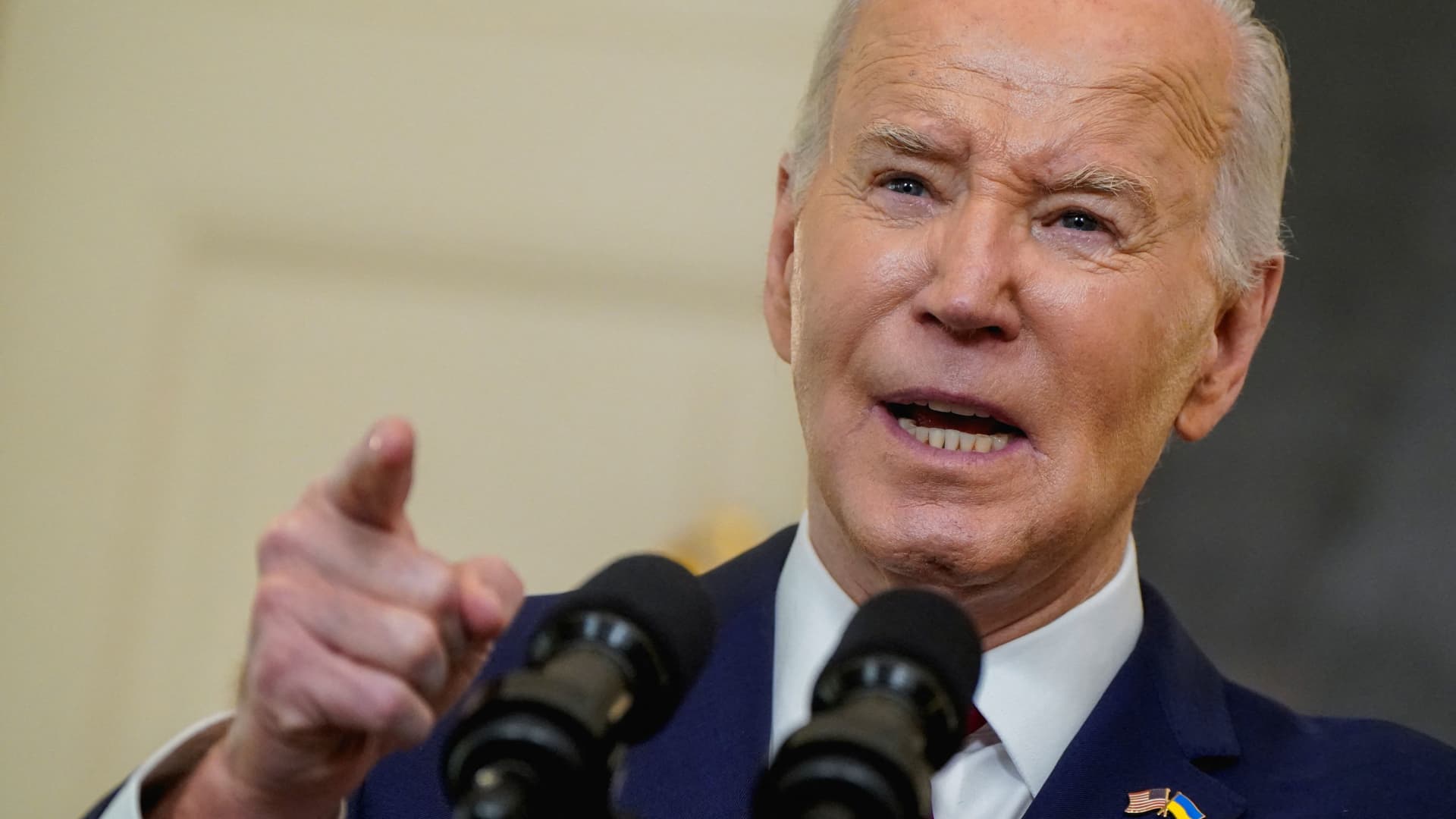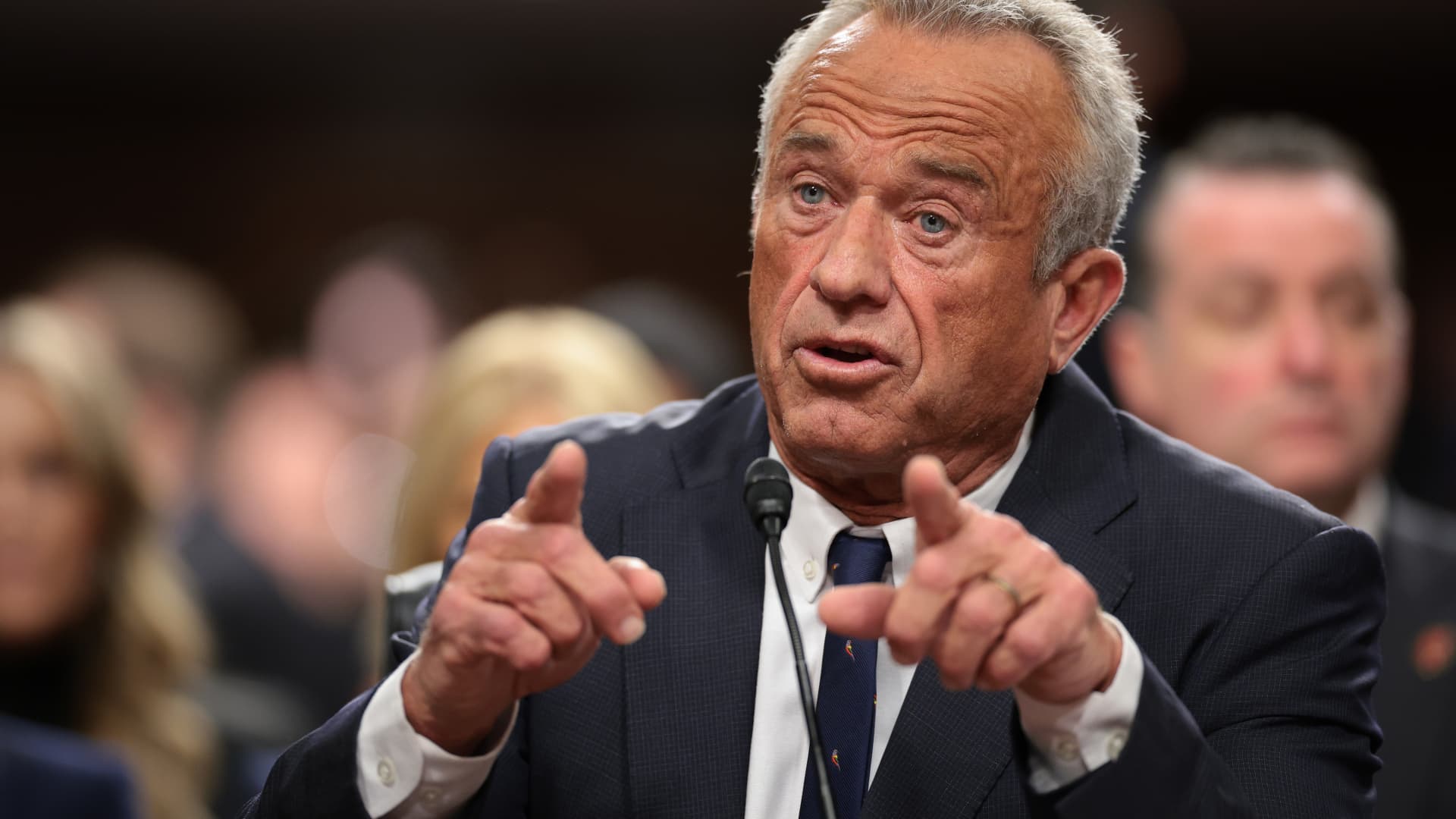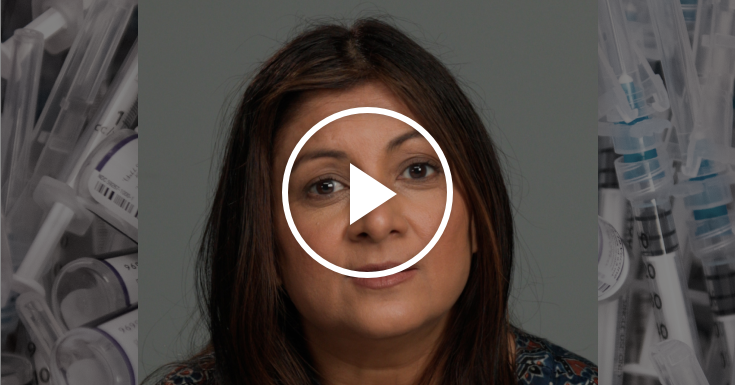The Food and Drug Administration has decided to allow Florida to import millions of dollars’ worth of drugs from Canada at prices much lower than in the United States, ignoring fierce, decades-old objections from the pharmaceutical industry, according to a senior administration official.
The approval is a major policy change for the United States, and supporters hope it will be a major step forward in the long and largely unsuccessful effort to control drug prices. Individuals in the United States can buy directly from Canadian pharmacies, but states have long wanted to be able to buy wholesale medications for their Medicaid programs, government clinics and prisons from Canadian wholesalers.
Florida has estimated it could save up to $150 million in its first year of the program by importing drugs to treat HIV, AIDS, diabetes, hepatitis C and psychiatric conditions. Other states have asked the FDA to establish similar programs.
But significant obstacles still remain. The pharmaceutical industry’s main lobbying organization, Pharmaceutical Research and Manufacturers of America, or PhRMA, which has sued over previous importation efforts, is expected to sue to prevent Florida’s plan from taking effect. Some drug manufacturers have agreements with Canadian wholesalers not to export their drugs, and the Canadian government has already taken steps to block the export of prescription drugs that are in short supply.
“Canada’s drug supply is too small to meet the demands of American and Canadian consumers,” Health Canada spokesperson Maryse Durette wrote in an email. “Bulk importation will not provide an effective solution to the problem of high drug prices in the United States”
Congress passed a law allowing drug importation two decades ago, but federal health officials delayed its implementation for years, citing safety concerns, one of the main arguments that pharmaceutical companies have also used against them. In 2020, President Donald J. Trump pushed for the law and announced that states could submit proposals for import programs to the FDA for review and authorization. President Biden built momentum the following year, directing federal officials to continue working with states on importation plans.
Florida submitted an application and then sued the FDA, accusing the agency of what Gov. Ron DeSantis called a “reckless delay” in approving the application. Friday’s announcement arose from that lawsuit; A federal judge had set a deadline of Jan. 5 for the FDA to act on the state’s request.
Eight other states (Colorado, Maine, New Hampshire, New Mexico, North Dakota, Texas, Vermont and Wisconsin) have laws allowing a state drug importation program, and many are seeking, or plan to seek, FDA approval. to move forward.
Colorado’s application is pending and New Hampshire’s FDA application was rejected last year. Vermont’s was considered incomplete; A spokeswoman said the state was waiting to see how the FDA handled requests from other states before resubmitting them.
Colorado officials have signaled that states may face challenges to their import plans from Canadian drugmakers, including household names like Pfizer, Merck and AstraZeneca. Some drug makers have signed contracts with drug shipping companies that prohibit deliveries to the United States, Colorado officials said in a report.
The importation of medicines has broad political and public support. A 2019 survey by KFF, a nonprofit health research group, found that nearly 80 percent of respondents were in favor of importing from licensed Canadian pharmacies.
“Importation is an idea that resonates with people,” said Meredith Freed, senior policy analyst at KFF. “They don’t fully understand why they pay more for the same medicine than people in other countries.”
With the 2024 presidential election on the horizon, candidates are seeking to take credit for efforts to lower drug prices. President Biden is highlighting the Inflation Reduction Act, which empowers Medicare to negotiate prices directly with drug makers for the first time, but only for a limited number of high-cost drugs. DeSantis, who is challenging Trump for the Republican nomination, is promoting his import plan.
Several pharmaceutical policy experts said importation from Canada would not address the root cause of high drug prices: the ability of pharmaceutical manufacturers to fend off generic competition by gaming the patent system and the federal government’s overall failure to negotiate directly with drug manufacturers on costs. .
“It seems to me like political theater, where everyone wants to say they did something to lower the price of prescription drugs,” Nicholas Bagley, a health law expert at the University of Michigan Law School, said of the Florida plan.
Both Bagley and Dr. Aaron Kesselheim, a professor of medicine at Harvard Medical School, said the Inflation Reduction Act is a more direct path to lowering prices; The law’s price bargaining provisions are expected to save the federal government approximately $98.5 billion over a decade. Drug makers are suing to stop those provisions from taking effect.
With its approval in hand, Florida has more work to do. Before it can distribute Canadian drugs, the state must send the FDA details about which ones it plans to import. The State must guarantee that medicines are potent and not counterfeit. It must also place FDA-approved labels on medications instead of those used in Canada.
The FDA said it would watch to see whether the state follows safety rules, such as reporting side effects of drugs, and offers significant cost savings to consumers. Florida’s approval to import lasts for two years from the date of the first drug shipment.
In Canada, health officials have been cautiously watching the push to import from their country. In November 2020, shortly after the Trump administration announced that states could submit import proposals, the Canadian government published its own rule to prevent manufacturers and wholesalers from exporting some drugs in short supply.
The Canadian government is likely to further restrict exports if they start to affect Canadians, said Amir Attaran, a law professor at the University of Ottawa. He said the numbers don’t work for a nation of nearly 40 million people to supply drugs to a state with 22 million people, much less 49 other U.S. states.
“If Florida can suddenly extend a vacuum cleaner hose to this country to grab what’s in the medicine cabinet, supply disruption will be a whole different category,” he said.
Harvard’s Dr. Kesselheim said FDA authorization was unlikely to make a difference in the price of very expensive brand-name drugs, because manufacturers would prevent wholesalers from exporting the drugs.
“I think it’s going to be difficult for states to import drugs like that on any kind of scale that could make a difference in terms of lowering prices for patients,” Dr. Kesselheim said. Still, he said, the FDA’s announcement is important because it puts an end to the idea that drug importation cannot be accomplished safely.
Bagley, of the University of Michigan, said there was a simpler solution to high drug prices than state importation programs: have the U.S. government negotiate prices with drug companies, as many other companies do. nations, including Canada.
“This is all a complicated and botched approach to a problem that may have a fairly simple solution: empower the government to negotiate drug prices,” he said. “So instead we are trying to exploit the machinery that Canada has created and that we were too timid to create.”

